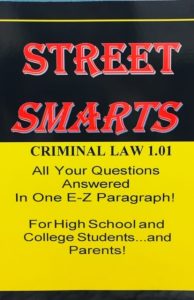 What Do I Do After I’m Arrested In Miami Florida?
What Do I Do After I’m Arrested In Miami Florida?
This three part series: What Do I Do After I Am Arrested in Miami, is a complete run through of the criminal court processes from arrest through final disposition of a Miami criminal case. This Article is Part Two of a Three Part Series that begins with the Miami State Attorney’s Office case filing decision. Please also see parts one and three.
Case Filing Decision:
The State Attorney’s Office will generally begin to review the case filing package on your case within 2-weeks after your arrest and make a filing decision within 21 days of your arrest, if you are in custody. If you are not in custody, the filing decision generally takes about 30 days or longer. Once the State files what is known as an ‘Information’ in your case, the Clerk’s Office will post your charges into the Clerk’s computer and you will be noticed with an Arraignment date. You may also have changes to your bond on the same date, assuming there are added charges or changed charges, from the charges that you were originally arrested for by the police. This is common because, the police do not always arrest you for the identical offenses that your are ultimately charged with by the State Attorney’s Office.
Pre-Filing Package:
Before your charges are filed, you have an opportunity to provide the case filing Assistant State Attorney with additional materials such as; witness statements, documents, recordings, and papers for his or her consideration in determining what, if any, charges should be filed against you by the state of Florida. I have represented thousands of clients pre-filing, which many times has gotten charges completely dropped. Oftentimes, supplemental materials filed by you will result in greatly reduced charges that are in the process of being filed against you. The pre-filing package represents the first line of defense in many cases. If you do not file supplemental materials with the State Attorney’s Office, the case filing Assistant State Attorney will rely solely upon the case filing package of materials received from the police department, and may accept all allegations and statements contained in the police package as true. This could result in more serious charges being filed against you in the criminal Information. Your defenses will rarely be set forth in the police reports used as the basis to arrest you. It is unfortunate indeed that more defendants do not utilize the pre-filing package opportunity in an effort to have reduced charges filed. I can assist you with these critical stages in your case.
The Defense Case:
After Arraignment in your case, you can file a ‘notice of discovery’, which is an official request for the state to file a discovery response listing witnesses, papers, and other specific evidence upon which the state will rely in attempting to prove it’s case against you. You are entitled to take discovery depositions from all material state’s witnesses in the preparation of your defense. The state will also provide you with copies of all relevant papers in your case, which may include witness statements, lab reports, photos, crime scene reports, police reports, and all other materials. You may also list defense witnesses and use defense exhibits in your case, provided that you give notice of these witnesses and materials to the state in advance. This is known as reciprocal discovery.
As your case progresses and as your attorney prepares your defense, pretrial motions may be filed on a variety of legal issues. As a general rule, the harder your attorney works on your case- the better your ultimate disposition in the case will be. Your attorney should examine the facts of your case and determine whether some or all of the charges filed against you can be dismissed and to file the appropriate defensive motions for dismissal. The results achieved in every case differ depending on a variety of factors, such as the nature of the charges, your prior arrests, the strength of the state’s case, the strength of the defense case, the judge, and the Assistant State Attorney assigned to your case. The prosecutor assigned to your case may change during the pendency of your case, which is quite common. This could be a good thing or a bad thing. Being fully prepared for all possibilities is the key to a successful defense.
Part Three Of Three will discuss what happens next through disposition of a criminal case filed in Miami, Florida.
—
This article by Miami Federal Criminal Defense Lawyer Ralph S. Behr is for informational purposes only and should not be construed as constituting legal advice. You should consult with your attorney to determine the best course of action to take on your case. For consultation regarding the specific facts of your case and arrest please contact Miami Criminal Defense Lawyer Ralph S. Behr.
 South Florida Criminal Defense Lawyer Blog
South Florida Criminal Defense Lawyer Blog






